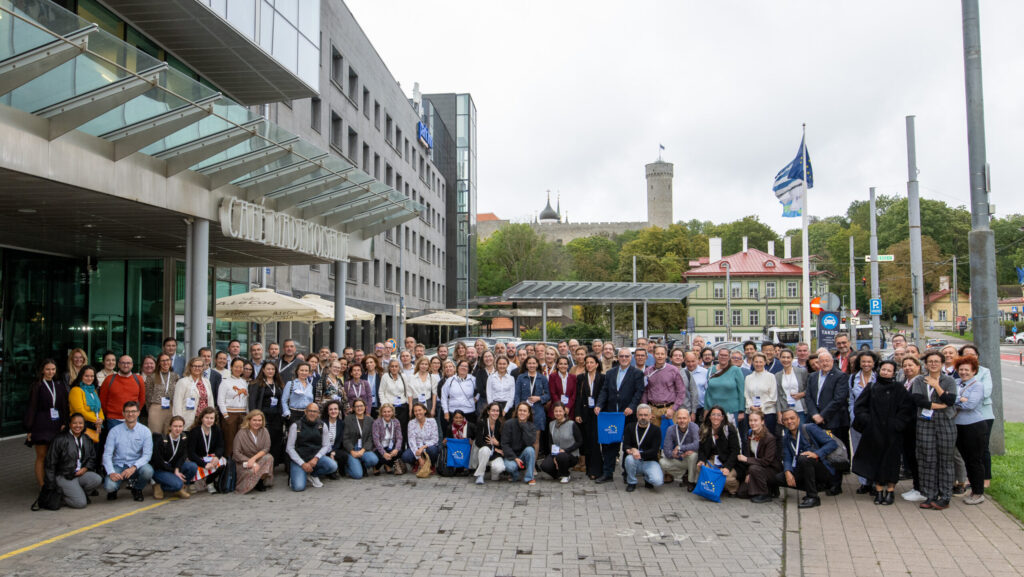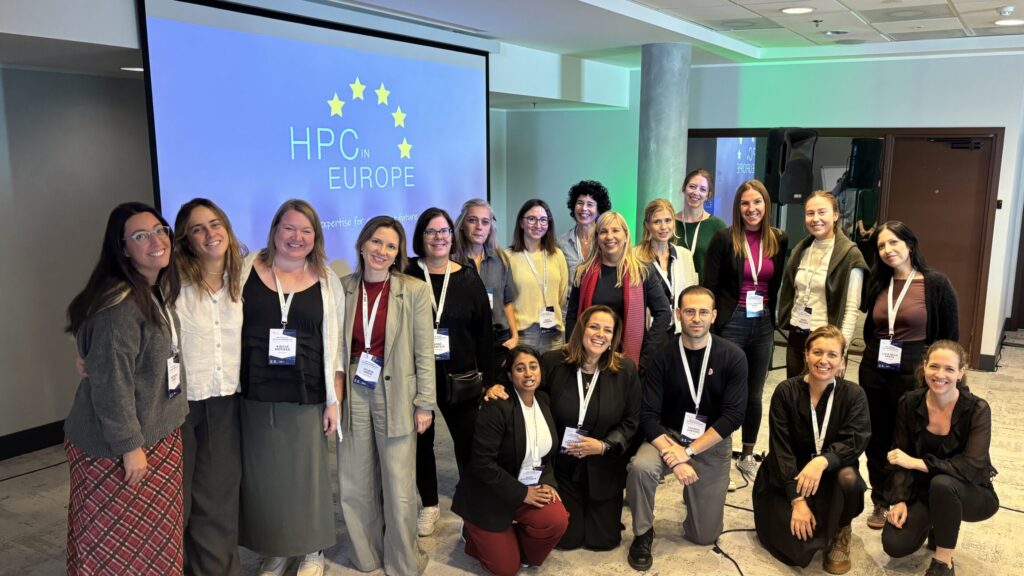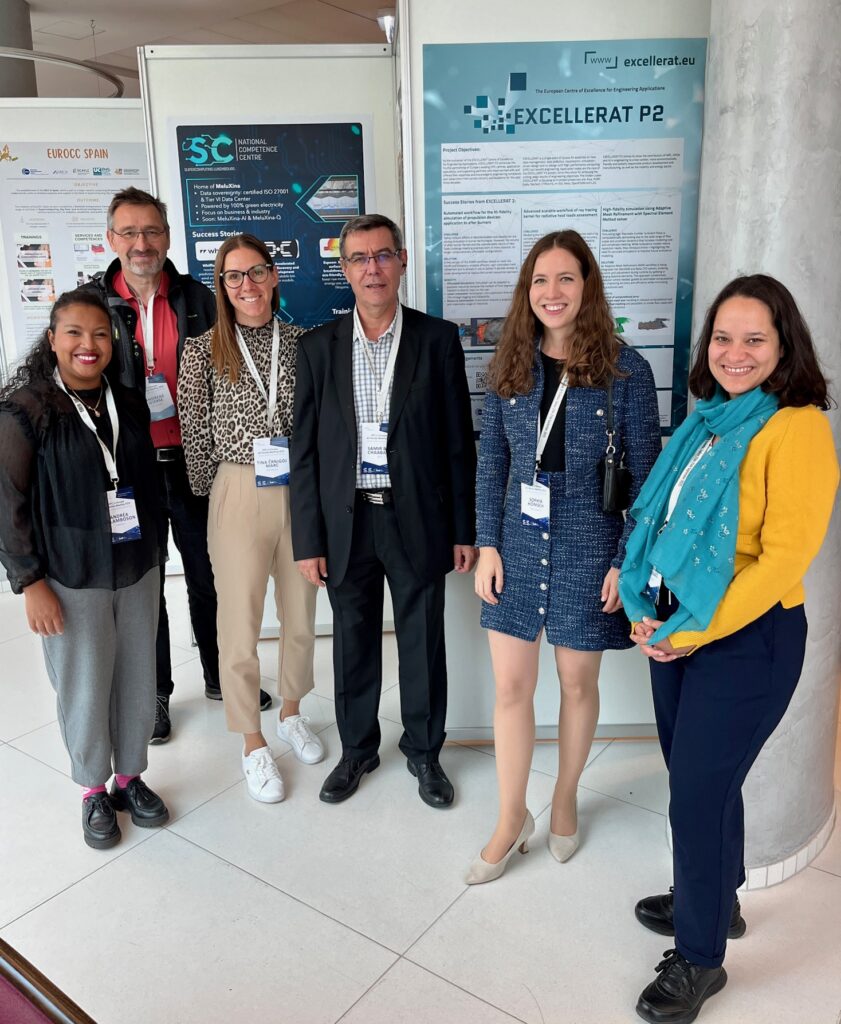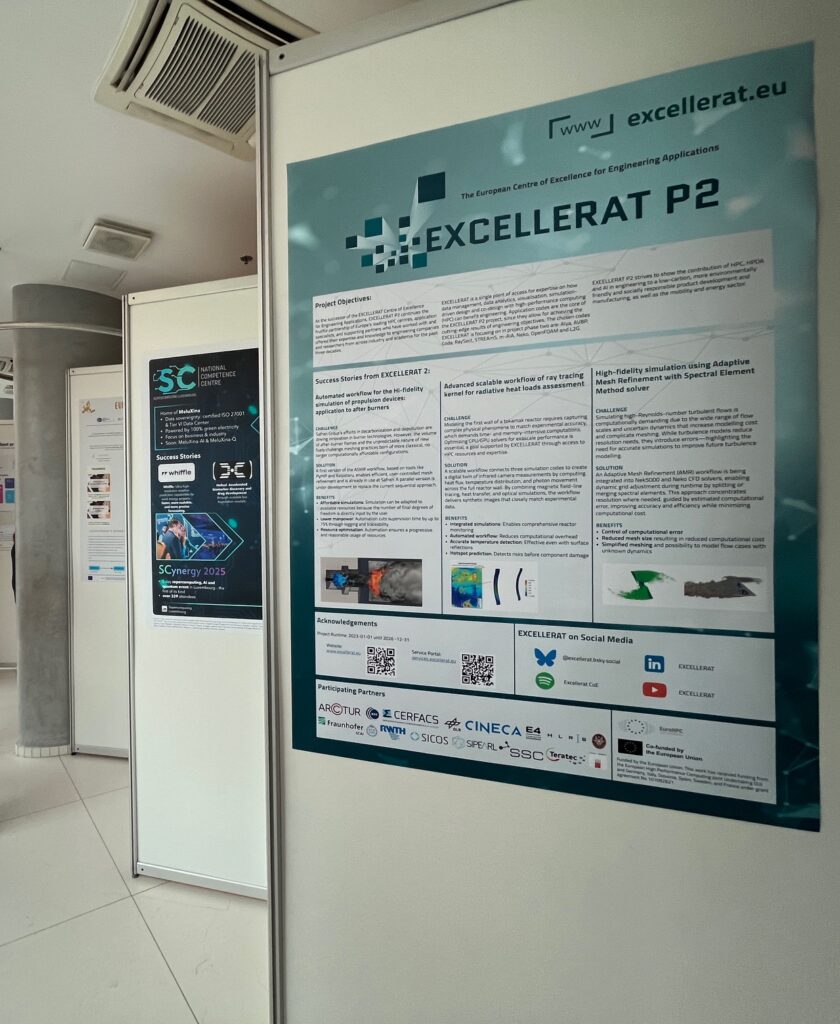Strengthening Connections: EXCELLERAT P2 at the CASTIEL 2 All-Hands Meeting


From 23 to 25 September 2025, the CASTIEL 2 All-Hands Meeting (AHM) brought together the EuroCC network of National Competence Centres (NCCs) and many European Centres of Excellence (CoEs) in Tallinn, Estonia. The gathering marked the final conference of CASTIEL 2, EuroCC 2, EuroCC4SEE, and CoEs.
Over three days, participants exchanged insights on the future of high-performance computing (HPC) in Europe. Key sessions covered the sustainability of
collaboration models, communication and training strategies, as well as discussions on the future of the EuroCC and CASTIEL projects and network. The agenda
also featured dedicated poster sessions, where EXCELLERAT P2 was represented alongside other CoEs such as dealii-X, ChEESE-2P, HIDALGO2, and POP3.


Although EXCELLERAT P2 did not contribute with a presentation slot this year, the poster sessions provided a valuable platform to share the project’s current activities and learn from peers. Beyond the formal sessions, the meeting offered many networking opportunities: from working group discussions to informal exchanges during the conference dinner and coffee breaks.
For EXCELLERAT P2,
the AHM was particularly fruitful in connecting with colleagues from
other CoEs and NCCs. Conversations highlighted shared challenges such as
knowledge transfer to industry, training needs, and the importance of
clear communication within and across projects. These insights will feed
into the network’s
ongoing work and strengthen cooperation within the wider European HPC ecosystem.
The Tallinn meeting reaffirmed that collaboration across NCCs, CoEs, and related initiatives is essential to foster innovation and knowledge exchange. For EXCELLERAT P2, participating in this community means not only showcasing achievements, but also learning from the diverse perspectives that drive HPC research and applications forward.
